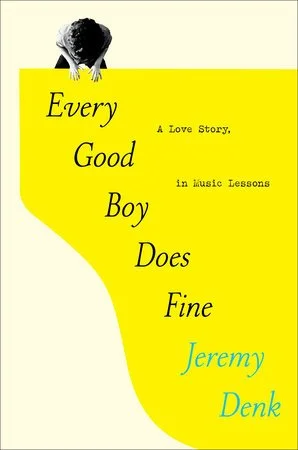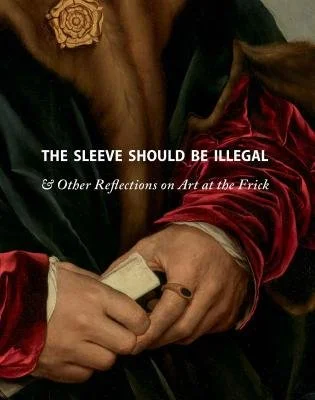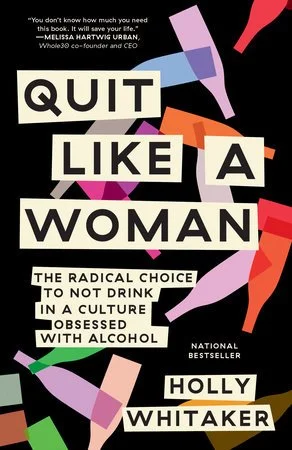Summer Reading List | Sarah Baker
Summer Reading List | Sarah Baker
Every Good Boy Does Fine: A Love Story in Music Lessons
Jeremy Denk
Jeremy Denk’s beautifully written, insightful, and touching memoir is a love story of his early piano lessons and teachers. It starts when he is an awkward six-year-old prodigy and ends at Juilliard just as his international and award-winning career is being launched. His teachers are a passionate, often contradictory, cast of characters. They regularly demand that he unlearn what he has just learned. How he makes sense of it and lands on something uniquely his own seems miraculous.
This is a must-read for anyone who wants to learn about, or more about, classical music. (Honestly any music.) The book is divided into three parts: Harmony, Melody, and Rhythm. Denk clearly explains (he writes for The New Yorker, Guardian, and others) all three, while recounting his coming-of-age at the piano, providing insight into Bach, Mozart, and other masters. Each chapter begins with a playlist, enabling the reader to really hear what he’s describing.
This is also a book for anyone who just loves glorious writing. As an arts writer, I know firsthand how difficult it can be to describe something abstract or conceptual. Try writing about music! Denk’s descriptions and metaphors allowed me to not only access but also understand his abstruse world. What a gift.
Every Good Boy Does Fine is a page-turner and can be read in one sitting. Or, if you’re like me, you will return to it time and time again to make sure you haven’t missed a detail.
The Sleeve Should Be Illegal & Other Reflections on Art at the Frick
Foreword by Adam Gopnik, Edited by Michaelyn Mitchell
This book is gorgeous. I love the Frick. I could look at Rembrandt’s Self-Portrait, Chardin’s Still Life with Plums, or Bellini’s St. Francis in the Desert all day, every day.
When I first looked at this book, COVID-19 was in full force. It reminded me of the Before Times, and standing in front of an artwork with friends. I could hear them, even smell them, they were so vivid to me. They led me to their favorites. We looked, we laughed, we told stories. We were slow looking, my favorite pace. I loved the range. Their opinions were quirky, sometimes surprising. I didn’t always agree.
They showed me that “mirthy spot of red on the boatman’s hat” in Corot’s Ville d’Avray. Thanks André Aciman. And Jonathan Lethem’s description of the velvet sleeve of Holbein’s Sir Thomas More: “The sleeve was ecstasy, the sleeve should be illegal, the sleeve was Utopia,” has forever changed the way I look at that painting. Firelli Báez pointed out the “shadowed under eyes” of Ingres’ Comtesse d’Haussonville, suggesting they were “signs of a long night about town.”
Not all of the writing in this book is spectacular, nor all the reflections revelatory, but there is plenty that is. And all is worthwhile. There is no judgment here. Just a group of smart, articulate people having fun at the Frick and sharing their thoughts. I wish every museum would publish a book like this. Isabella Stewart Gardner Museum? Hello? You there?
Quit Like a Woman
Holly Whitaker
I’m not an alcoholic, though it runs in my family. But a friend in AA, and struggling, mentioned a much-needed “switch went off” after reading this book. Curious, and wanting to understand her journey better, I bought the book. I’m now giving it to everyone. It’s social history, memoir, and guidebook to living a more grounded, balanced life where that drink at the end of the day is no longer essential.
Whitaker takes a radical, yet holistic approach to becoming sober. She’s foul-mouthed, funny, a frequent rules-breaker, a badass. AA wasn’t working for her. She felt it was “archaic, patriarchal, and ineffective for the unique needs of women and other historically oppressed women.” That’s not surprising as we learn AA was started by wealthy white men for other wealthy white men. They might have needed humbling, most women don’t.
Whitaker healed herself and found her own way to sobriety. Since then, she has taken everything she learned and formed an alternative feminine-centric community online that helps others fight addiction.
This is a strange book to recommend in a forum like this. But these are challenging times and I found Whitaker’s advice about how to live a more balanced, sane life practical, and creative. It was easy to skim parts that weren’t relevant.
Sarah Baker
Sarah Baker is a writer, editor, and producer. She has developed and overseen multiple media products including magazines, books, radio, and most recently a pilot for a podcast. She has been a book editor at Simon & Schuster and Viking/Penguin, a radio producer for various NPR shows, and editor in chief of Art New England magazine. Today, she is working on a memoir, freelance writing, and getting certified in Visual Thinking Strategies, an educational tool that uses art to build empathic communication, deepen connections, uncover biases, and foster cognitive and behavioral growth.






